Search
Search Results
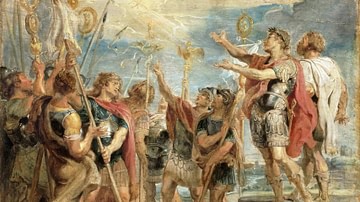
Article
Constantine’s Conversion to Christianity
Constantine I (Flavius Valerius Constantinus) was Roman emperor from 306-337 CE and is known to history as Constantine the Great for his conversion to Christianity in 312 CE and his subsequent Christianization of the Roman Empire. His conversion...
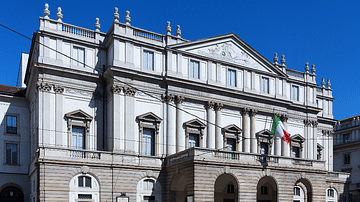
Image
Teatro alla Scala, Milan
The Teatro alla Scala ('La Scala') opera house, Milan, Italy. It was inaugurated in 1778.
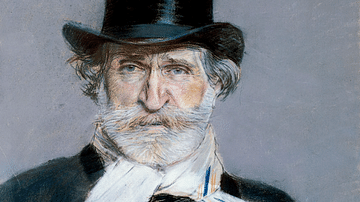
Definition
Giuseppe Verdi
Giuseppe Verdi (1813-1901) was an Italian composer best known for operas such as Rigoletto, La traviata, and Aida. Verdi is noted for his powerful scores and strong characters where anti-heroes lead the dramatic action through often complex...
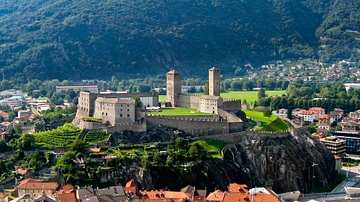
Definition
Castles of Bellinzona
The Castles of Bellinzona are a set of three medieval fortifications located in and surrounding the city of Bellinzona, which is located in Canton Ticino, Switzerland. These castles are the only remaining examples in the Alpine region of...
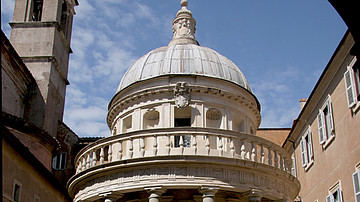
Definition
Donato Bramante
Donato Bramante (c. 1444-1514 CE) was an Italian Renaissance architect whose most famous project was the design for a new Saint Peter's Basilica in Rome, even if this work remained unfinished at his death. Bramante had also designed the influential...
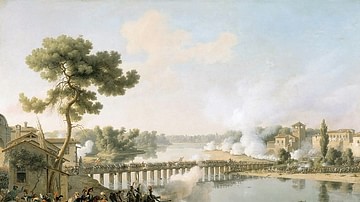
Article
Battle of Lodi
The Battle of Lodi (10 May 1796) was a minor, yet important, engagement during Napoleon's Italian Campaign of 1796-97. Although the battle itself held little military significance, victory at Lodi gave General Napoleon Bonaparte the respect...
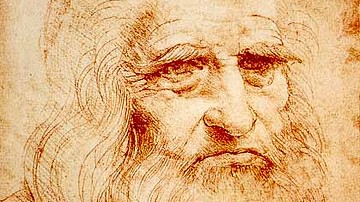
Definition
Leonardo da Vinci
Leonardo da Vinci (1452-1519) was an Italian Renaissance artist, architect, engineer, and scientist. He is renowned for his ability to observe and capture nature, scientific phenomena, and human emotions in all media. Leonardo’s innovative...
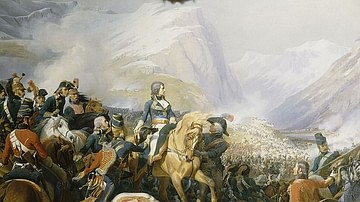
Definition
Napoleon's Italian Campaign
The Italian campaign of 1796-1797, waged by a young Napoleon Bonaparte, was a decisive campaign in the French Revolutionary Wars (1792-1802). It led to the defeat of Austria, the beginning of French control of northern Italy, and the end...
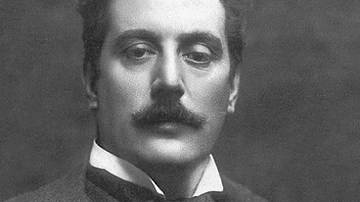
Definition
Giacomo Puccini
Giacomo Puccini (1858-1924) was an Italian composer best known for his operas La Bohème, Tosca, Madama Butterfly, and Turandot. Puccini drew inspiration from a wide range of literary sources, and his late Romantic music with its immortal...
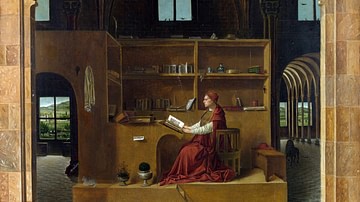
Definition
Renaissance Art
The art of the Renaissance period in Europe (1400-1600 CE) includes some of the most recognisable and best-loved paintings and sculptures in the world. Masters were often skilled in both painting and sculpture, and by studying the art of...